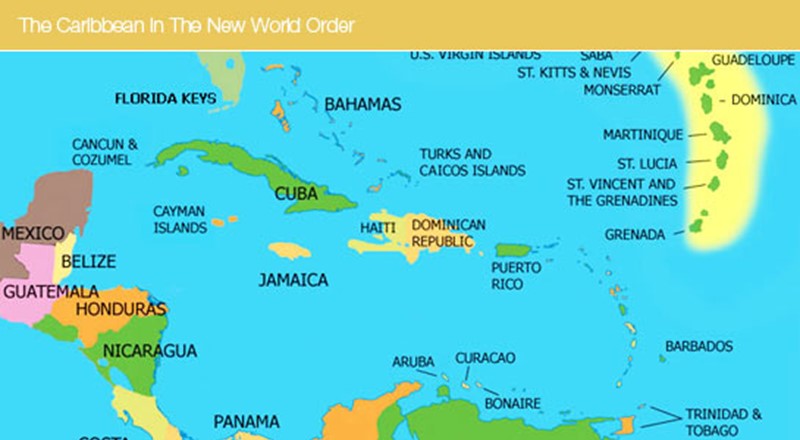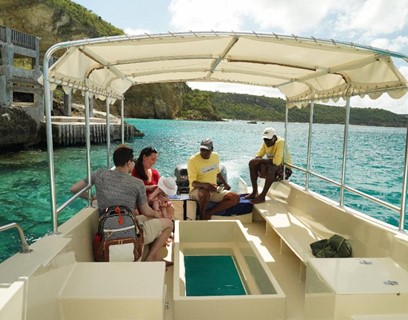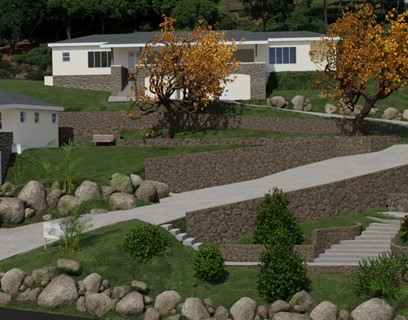
Part 1 - Reconceptualising innovation and the challenges of Caribbean development
Innovation as a vital source of private and social gains has been recognised the world over. Global policy debates, most recently at the OECD Global Forum on Development (GfD), have taken keen interest in the policy implications of innovation for inclusive development, addressing some fundamental questions. The myriad challenges facing small island states of the Caribbean make the strategic management of innovation an imperative and the consequences of under investment far-reaching. Indeed, T&T, like the rest of the region, needs to take Science Technology and Innovation (STI) and its potential contribution to development seriously. There is a firm foundation provided by the past efforts such as the Caribbean Technology Policy Studies (CTPS) programme, spearheaded by the late Norman Girvan in the 1970s and 80s at the University of the West Indies, with important industry-level analyses by the late Trevor Farrell. This important research programme had these issues as its central focus, long before many other parts of the developing world caught on.
The insights derived have since been left in abeyance (or forgotten). The CTPS programme was in fact a watershed in Caribbean research as it provided a thorough going deep analysis of the links between STI and the region’s developmental challenges. These studies also demonstrated how home-grown institutions and researchers could add value to forward-thinking policy initiatives. Since the 80s, however, the pace of technological change has been at break-neck speed, and the region appears not to have coped well, despite some efforts in ICTs and green technologies. What is even more disconcerting is that the perception of Caribbean private sector firms as not being dynamic and able to seize opportunities, as well as upgrade capabilities has become even more entrenched. In this respect there are some bright spots in terms of public sector led initiatives and efforts to create specialist institutions concerned with innovation.
From this perspective, the Trinidad and Tobago government, at least in principle have outlined policy efforts aimed at enhancing the country’s institutional capacity and infrastructure for innovation. There has however been a great deal of emphasis on the inadequacy of national levels of expenditure on formal Research and Development (R&D). These concerns are by no means unique to the Caribbean. Most developing nations struggle to achieve levels of expenditure equivalent to 1% of GDP, and with the current debt situation in many Caribbean countries this is not likely to improve. However, what the policy makers in the global South should take comfort from is that it's the non-technological aspects of the STI ecosystem that may prove far more important for innovation outcomes. R&D expenditures matter, but there are a number of other worthwhile investments, such as search and scan capabilities that may prove more important. The conventional treatment of laboratory based R&D as the holy grail is no longer de rigueur. It is now common cause, even in wealthy countries, that science based activity that produces breakthrough or radical technologies are only a small proportion of innovation activity. This is even starker in the developing world where our lived realities are of informality, frugality and survival. Investigations of these conditions are prompting some of the most interesting work in innovation, not based on models of laboratory centric science and technology. In the Caribbean, we need a holistic understanding of innovation and the conditions which give rise to its success. Viewing innovation as an investment activity that requires the judicious selection of modes by various actors gets away from the fear explicitly addressed by stakeholders that we are not in good stead to achieve much. In fact, there is little real basis for fear of private sector crowding out the public sector, particularly if state enterprises are taken into account, where they function as alternatives to private sector provision, or in separate domains altogether.
Innovation as a long-term investment activity
We suggest that the Caribbean region needs to begin by reframing innovation along the following lines. Innovation is an investment activity that produces returns over the medium to long term. The inputs and activities that are likely to enhance innovation outcomes include equipment, as well as skilled, confident, human beings who are not risk averse and work in settings (both public and private) that encourage and support experimentation and learning, even from mistakes. There is an open exchange and sharing of knowledge including across geographic and national boundaries and organisations and individuals are able to define and discern their interests. Innovation can also be made more effective when there is a cadre of competent scientists, engineers and technologists who engage in activities that generate new knowledge or solve existing problems, including those related to functionality and affordability. There are business cycles and technology patterns at play and these influence how well enterprises and societies respond to and create opportunities. High levels of innovation can be transcendent leading over time to societies redefining their sense of themselves and increasing communal and individual self-esteem.
Innovation also requires the mobilisation and allocation of financial capital.
Mechanisms that finance innovation should be targeted yet flexible. Public sector funding of innovation ought to emphasise well-designed funding initiatives that place emphasis not only on increasing access to financial capital, but also on cultivating risk-taking entrepreneurs and are best directed at strategic initiatives. Authorities can identify sources of investment within existing fiscal priorities or create new ones, which do not necessarily place greater burden on the taxation system. For private sector investors, the balancing of risks and rewards will moderate behaviour, and this will change over technology and industry cycles. Innovation hotbeds thus require aligned financial systems, mindsets and organisational cultures.
Scholarly work in the field of innovation studies, as well as by international development agencies, including UNCTAD, suggest that in developing countries, investment in human capacity, firm-level competence building and efforts to make innovation attuned to the practical realities, can auger quite well for improving the chances at innovation success. All of the other inputs and activities such as attitudinal change are equally important.
From the foregoing, we strongly urge the region to scale up its investment in innovation- enhancing input; these include but are not limited to science and technology related capabilities. Moreover, the region needs to rethink the nature of innovation capabilities and enhance both the policy and strategic understanding of how innovation outcomes are realised over time. There is broad agreement that the Caribbean requires high-quality capabilities in sufficient quantity and does not currently possess them. However, there is an absence of a compelling narrative providing guidance for corporate strategy and public policies. We need a story that describes how innovation can align with the regions structural realities and pressing needs. The illustrations taken from the experiences of other countries small (such as Slovenia) and large (Brazil and Indonesia) can go a long way but will not substitute for a well-grounded research and policy experimentation programme on the scale of CTPS, thirty years later. In the next part of this article, we outline such a programme.
Part 2 - An agenda for innovation in the Caribbean
An agenda for stimulating improved innovation performance in the Caribbean will require investment across a number of areas. In terms of skills and attitudes the current education system, with its focus on developing static capabilities, i.e. absorbing information about existing tools, techniques and worldviews is in need of transformation. There should be much greater emphasis on creative thinking and experimentation. The region should encourage technology tinkering or even reverse engineering (to the extent that it is possible under global trade intellectual property rules) to make equipment fit for purpose as explicit strategies rather than regarding them with suspicion as second order options. There should be a dual and parallel focus on, both traditional economic sectors and new productive activities. This is particularly true given the slow pace at which diversification has proceeded in the region and the negative consequences associated with of vulnerability to macro-economic shocks. The Caribbean region has not in the recent past defined a set of longer term strategies. An innovation perspective would compel this longer horizon as well as a frank assessment of the current reality. In any strategy for the region, it will be necessary to improve our understanding of and the ability to manage complex relationships and negotiations with international suppliers and donors. We also need to explicitly and with some sense of urgency update our search and scan capabilities so that we can acquire technology and knowledge from contexts similar to our own. These interventions require relevant know-how, partnerships and bold policies.
The Caribbean urgently needs to diversify and transform its productive base. This need for diversification away from/in agricultural and natural resource industries is also receiving attention from scholars such as Carlota Perez and others, who advance that the nature of knowledge in sectors dominated by multinational firms, require explicit government intervention. The lack of spill-overs in terms of benefits to the local economy, and weak linkages to domestic firms inhibit their ability to upgrade in global value chains due to internal policies and practices of multinational enterprises. They are therefore restricted in their operations and how they could become globally competitive through innovative practice. In light of the fact that petroleum and natural gas dominate the T&T economy, while tourism and other service sectors are prevalent across the region, diversification requires first analysis of the position of regional players in these global sectors as well as future possibilities. We believe that vital focus, after fifty years of development policy experience, that Trinidad and Tobago, is well placed to benefit from these particular insights especially the energy sector is required to diversify the economy into new activity. At present, however, the multilateral agencies dominate how these issues are being framed and addressed, while very little indigenous policy-oriented research seems to be occurring. The region needs to define and clarify difficulties and develop relevant frameworks for solution generation. Imported solutions (as has happened ad infinitum in the past) can impede building local research capacity and knowledge generation, which might in the long term have limited effect on formulating appropriate solutions.
The role of culture and the regional advantage
In this respect, the role of culture is crucial. It is not coincidental that it is in the realm of cultural services where the unique products and services of the Caribbean are most well-known. What is less well understood is the underlying process of innovation that gives rise to these outcomes. What we have to contribute, if we are bold enough, is to value our own experience enough to investigate it closely and to define and develop frameworks based upon those findings. For example, what is the nature of the process in steel band yards in the Laventille hills and elsewhere, that gave rise to such a remarkable musical instrument? What, if any, are the limitations for product development, replication, and commericalisation based on this model? What other types of value is created in the steel band yard beyond the commercial and monetisable? In the first instance, taking such a perspective places greater value upon our own cultural products and goes beyond traditional research activities. In addition, such an approach has already borne significant fruit through efforts in India that acknowledge and document innovation practices by ordinary citizens, often at grassroots level. The emphasis on ‘frugality’ and ‘making do’ has given rise to a series of new forms of innovation practices occurring there, that are well suited to our own environment. Consistent with the Maroon experience, in Jamaica and Guyana, the Indian examples of jugaad innovation, speak to efforts that are used by people to sustain their livelihoods and utilise available resources without sophisticated scientific knowledge.
What is unique about these historical experiences that can be drawn upon and further enabled to inform present-day innovation practice? The focus here is on indigenous ways of knowing and creating that move away from the science-centric notion of innovation. The jugaad innovation models and other similar forms are usually not laboratory based and intermix with daily life, science and invention much more intimately. Celebrated innovation advocates such as Anil Gupta have been very successful in arguing for horizontal links among citizen innovators and vertical links between them and formal science. There is no duality but a reinforcement of benefits between new technologies and scientific knowledge and other forms of knowing and doing. The West is paying attention as the cost advantages and the process and engineering functionalities yielded in biomedical engineering and other fields are significant. In addition to cost economics and productivity gains, the utilization and valorisation of these models is of symbolic value. Finland has Nokia, the US has Silicon Valley and Route 128 and now India has a number of success stories in terms of world class innovation enterprises. Kenya in the African region is out front in terms of perception of innovation activities bearing fruit. In summary, the Caribbean has an opportunity to place culture and cultural services at the centre of an innovation strategy. The cultural products and other historical experiences that have been birthed and are prevalent in the region can be an important source of learning and advancing innovation strategies.
Innovation and societal transformation
In the social realm, there is much to be gained from an understanding of how social interventions and the social sector more widely can benefit more from efforts at innovation. In T&T community, personal and social services account for over 33 per cent of employment, contributing to over eight per cent of GDP by value added. The need to improve productivity and effectiveness of such activities including interventions aimed at reducing criminality or bringing about positive social change at the community level is highly recommended. Experimenting with targeted policies and social interventions can bring about new insights and learning and can auger well in addressing rising levels of criminality, inequality, job creation, water provision, migration etc. For example, in Latin America scholars such as Judith Sutz and Howard Richards, working with the rethinking economics group, are focused on the intersections between social policies such as housing, education, and crime prevention and innovation efforts, suggesting that this could be useful approach.
Similar attention is needed to address relevant social phenomena in the region that account in part for specific context and how innovation efforts can be applied effectively. Innovation as socially embedded practice requires keen insights into evidence of the priority challenges that befall regional territories, while tailoring approaches based on learning experiences both within the region and other comparable countries. In addition, much attention needs to be placed in designing both research efforts and policy interventions that have useful data into and offer guidance in terms of how innovative social policies could address them more favourably. Simultaneously, increasing capacity of local communities and institutions to manage them is of key importance since locally-owned and embedded interventions are usually more effective. The need to transform societies and communities must begin with an inward focus on the needs of the community, its resilience and social dynamics, and empowering citizens by creating invaluable opportunities for and providing needed resources for them to contribute to social change and improving their communities through innovative effort.
Taking a broad view of innovation is essential
Apart from the recognition that things need to dramatically change in the Caribbean region and the value that STI can bring about economic and social transformation in the region, there is need to embark in new directions. Firstly, there is need to acknowledge the role that well-designed and implemented research programmes can contribute to such efforts. The findings from research can be very useful to policy makers when negotiating with donors and development partners, setting priorities and making resource allocation decisions for use of very limited funds. Secondly, since national and regional innovation strategies are landmarks, requiring specialist knowledge, deliberation, consultation and considerable experience they need adequate resources and well selected teams that have the knowledge and interest of the region as well as the benefit of global perspectives.
We have made the case for innovation that is much broader than in the narrow sense of increasing R&D expenditure. Improvements in understanding innovation are required in order to design strategies for building the capabilities of Caribbean enterprises and for effectively addressing the social and economic difficulties that plague our societies.
A new research programme and community of practice for the Global South
These concerns, especially regarding the nature of the innovation process itself and policy making practices that are attuned to the ways in which innovation actually takes place, form the basis of an ambitious research programme, led by and involving Caribbean scholars working with colleagues at MIT, Science Policy Research Unit (SPRU) at the University of Sussex, University of Manchester, Northeastern University in Massachusetts, Georgia Tech, and Harvard, in the global North, as well as Indian Institute of Management, FGV/EBAPE in Brazil, UAM in Mexico and Wits University and University of Cape Town, both of South Africa.
We are keen to engage with individuals, communities, enterprises, policymakers and institutions, to discuss and exchange ideas and further this ambitious agenda that aims to contribute to ensuring that policy and innovation practices are grounded in and responsive to the realities in developing countries.
A version of this article appeared in Trinidad Business Guardian and Sunday Business digital editions on July 24 and 27, 2014 at the following url addresses:
Part 1: http://digital.guardian.co.tt/?iid=98130&startpage=page0000130#folio=130
Part 2: http://digital.guardian.co.tt/#folio=126
Author Bios
Gillian Marcelle, Trinidad-born Associate Professor of Strategy and Innovation at Wits University and Visiting Research Scholar at MIT Energy Initiative, Tata Center for Technology and Design has over 20 years experience and training in innovation management, policy and advocacy gained in the US, Europe, the Caribbean and Africa. She is currently based in Cambridge, MA - Gillianm@mit.edu
Keston Perry, Trinidad-born doctoral researcher at SOAS, University of London, is investigating the institutional dynamics of science technology and innovation policy for economic development in small economies, such as in the Caribbean. – kk_perry@soas.ac.uk


